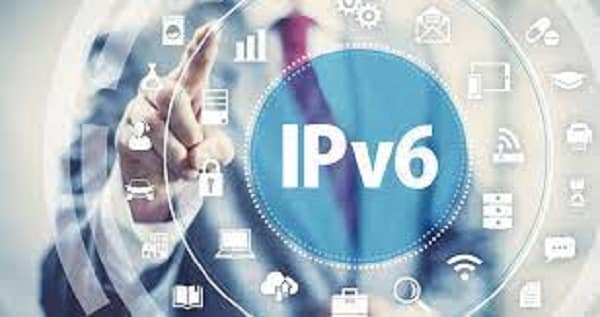The Global IP Technology Annual Conference (IPv6+ forum) with the theme, “Accelerating IPv6+ Industry Development to Catalyse New Business” was successfully held at AfricaCom 2021, attracting participants from government, business, operators, industry organisations and device vendors.
IPv6 (Internet Protocol version 6) is the sixth revision to the Internet Protocol and the successor to IPv4.
The conference explored IPv6+ values, policy development, carrier deployment practises, and device vendor solutions. Participants agreed that IPv6+ is a powerful assistant for digital transformation in Africa. It can improve the digital economy, help carriers improve profitability, and open up new business opportunities.
After more than 30 years of development, IP network has experienced the Native IP era of reachability and the MPLS era of multi-service integrated bearing. Service cloudification and digital transformation impose higher requirements for networks, not only the number of connected addresses but also high-quality bearers. The number of IPv4 addresses is limited and the efficiency imposed by Network Address Translation is low. Therefore, the evolution from IPv4 to IPv6 has become an inevitable trend.
Sonny Wang, vice president of Huawei Data Communication Product Line, pointed out that IPv6 can provide connectivity for everything, during his opening remarks. Still, having addresses is not enough for digital transformation. Network capabilities need to be further improved.
Wang cited examples of securities trading which require low connection latency, intelligent electricity business which needs low connection jitter, and telemedicine which requires stable connection bandwidth. The IPv6+ technology is a technological innovation system based on IPv6 to comprehensively improve network capabilities and address various requirements and problems in the digital transformation of all industries.
To promote IPv6+ development, European Telecommunications Standards Institute (ETSI) established an IPv6 Enhanced Innovation (IPE) working group in October 2020 to work with industry partners to promote IPv6+ development.
Latif Ladid, Chair of IPE, delivered a speech titled “Promoting IPv6 Innovation and Accelerating Digital Transformation“, introducing the value of IPv6+ and the development of industry alliances.
He said that IPv6 would be widely used in next-generation services, including the Internet of Things, Cloud and wireless services, among them, which is of great significance to establishing national digital sovereignty.
In addition, with the advent of the 5G and cloud era, IPv6-based enhanced technology innovation (IPv6+) will bring first-class service experience and become the cornerstone of next-generation service development. Finally, Latif introduced ETSI’s definition of IPv6+ and invited everyone to join the IPE consortium.
According to the African Network Information Centre (AFRINIC)’s report, IPv4 addresses in Africa will be exhausted in 2022, and IPv4 address allocation in Africa is insufficient. As a result of this, African governments attach great importance to IPv6 development.
Matano Ndaro, Director of Licensing Compliance & Standards at the Communications Authority of Kenya, introduced Kenya’s considerations of IPv6/IPv6+ development pointing out the fact that the digital economy is becoming increasingly important in economic development.
Kenya is a leader in Africa ICT development and promotes the development of the digital economy by enhancing the development of IPv6.
In line with the National ICT Policy of 2019, he believes that the migration to IPv6 needs to be completed as soon as possible, which will bring many benefits, including sufficient IP addresses, eradication of address translation, secure networks, and more efficient use of bandwidth. Ndaro added that IPv6+ makes IPv6 connections faster, more reliable and smarter.
IPv6+ increases the value of IPv6 network and services for applications, enabling operators to provide new services and lower operating costs, just like Google Maps increase the value of roads and cars for people. The Communications Authority of Kenya is considering encouraging operators and industries to deploy IPv6+. Finally, Mr. Ndaro presented the considerations of the Communications Authority of Kenya for the migration to IPv6/IPv6+.
Network infrastructure has great significance to digital transformation. Operators, as network infrastructure builders, also made great presentations at the forum.
Nkosinathi Nzima, Senior Manager of Fixed Network Planning and IP Core, MTN Group, introduced MTN Group cloud-network strategy. He pointed out that cloud services have a big market in Africa.
MTN Group needs to seize this rare opportunity, based on MTN Ambition 2025 network strategy and “CASSI” as the delivery framework to build a new cloud-oriented network architecture and a non-blocking agile bearer network. He further discussed three cases on the evolution of transport network which are key capabilities: network visibility, zero-touch deployment, and network self-healing.
Nzima concluded that MTN was building a network with the best customer experience, to deliver the benefits of a modern connected life and Leading Digital solutions for Africa’s progress.
Subsequently, as a leading operator in South Africa, Francois Olivier, Head of Engineering at Rain South Africa spoke about “Building a 5G Converged Bearer Network”. He said that slicing truly introduced the possibility that we needed to build and deliver of high capacity networks with SLA. Flex-E and SRv6 are key building blocks for future networks.
As an industry-leading telecom equipment provider, Huawei is committed to helping African telecom operators develop in the 5G and cloud era.
Hank Chen, president of router domain of Huawei Data Communication Product Line, introduced the Huawei IPv6+ based intelligent cloud-network solution.
He believes that while the 5G and cloud era brings new opportunities for connectivity, digital transformation of production and consumption services also brings many challenges.
To meet service changes, networks must have three features: converged bearer, deterministic experience, and intelligent O&M.
Huawei provides IPv6+ based end-to-end, full-service, and all-scenario intelligent cloud-network solution to meet network development requirements in the context of digital transformation. These solutions can be widely used in a wide range of industries, including small and medium enterprises, healthcare, education, and mobile interconnection.
He concluded that Huawei would continue to work with operators to build advanced network capabilities in the 5G and cloud era to achieve the goal of IP On Everything.



2 Comments
Pingback: Accelerating IPv6+ Industry Development to Catalyse New Business, Promoting Africa Digital Economy – TelecomBiZZ
Pingback: Accelerating IPv6+ Industry Development to Catalyse New Business, Promoting Africa Digital Economy – Techfinancials.co.za – CADZilla